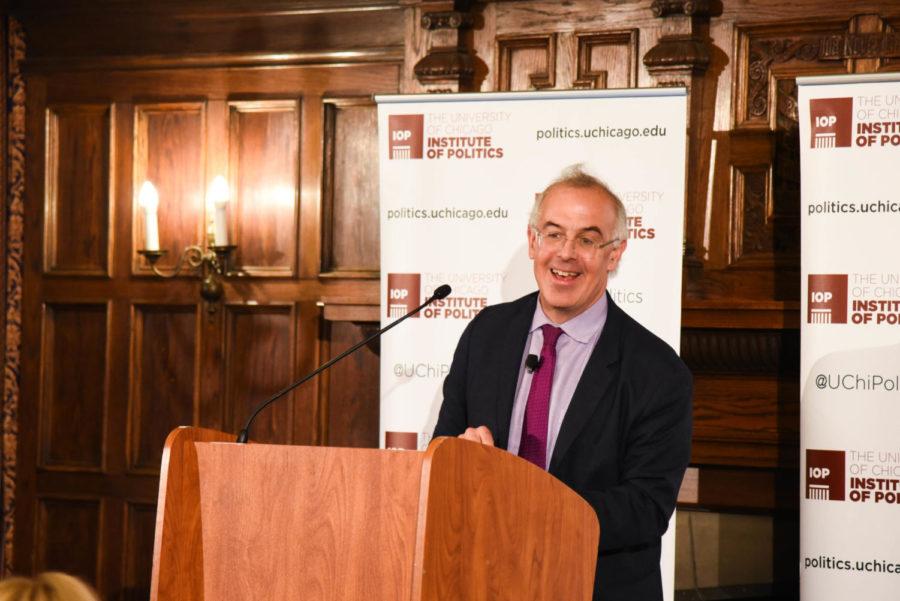New York Times columnist David Brooks (A.B. ’83) discussed populism at an event hosted by the Institute of Politics (IOP) on Monday.
Brooks began the event with a short speech outlining a “hatchet, ratchet, pivot, hatchet” concept of societal change and its manifestations. In his speech, he used references to the College Core Curriculum to frame his arguments, and identified a deep-seated desire of many people to be a part of a positive social movement.
“[People] build communities, or they build moral ecologies, which is a culture in which it is easier to be good…to solve the problem of their time,” Brooks said. “And they build for a time and they work for a time and then they stop working.”
Over time, Brooks said, the institutions built for one generation become irrelevant to future generations.
“History moves by a process of hatchet, ratchet, pivot, hatchet,” he said. “You build a culture that solves your problems, then it stops working, so you hatchet it up and you pivot and you build another one.”
Tracing examples of previous cultural upheavals, Brooks diagnosed the present moment as a part of the cycle of institutional reform.
“I think we’re at another one of these hatchet moments, and those moments can be bumpy. To me, we’re sort of running out the string on this individualistic ethos,” he said.
What Donald Trump and other populists have done, according to Brooks, is take advantage of a vacuum moment in society to create a new paradigm aligned with their interests.
“The populists understood that you don’t have to build a new system, you just have to tear down the old culture that isn’t working for people anymore,” Brooks said.
After Brooks’s speech, the floor opened for questions on topics including the upcoming Steve Bannon event and responses to growing tribalism. Brooks enthusiastically endorsed Bannon’s upcoming visit to campus as an opportunity to better understand the populist worldview, although he stridently disagrees with Bannon’s views.
“I spent an afternoon a few months ago with Steve Bannon. I highly recommend that he come here,” he said. “It was like being with Trotsky in 1905. This guy knows who his intellectual antecedents are, he’s got a 50-year plan to take over this institution, that institution, he knows who his international allies are…. He’s got a tremendous coherence to his worldview and it was kind of inspiring. I didn’t agree with it at all, but at least there’s a coherence and a conviction.”
Brooks referred to his College experience, which taught him that hearing others' ideas was the best way to sharpen his own convictions.
“They taught us how to argue by seeing the other points of view as well as we saw our own,” he said. “If you don’t get in the habit of teaching it, people will dismiss what they don’t want to believe.”








